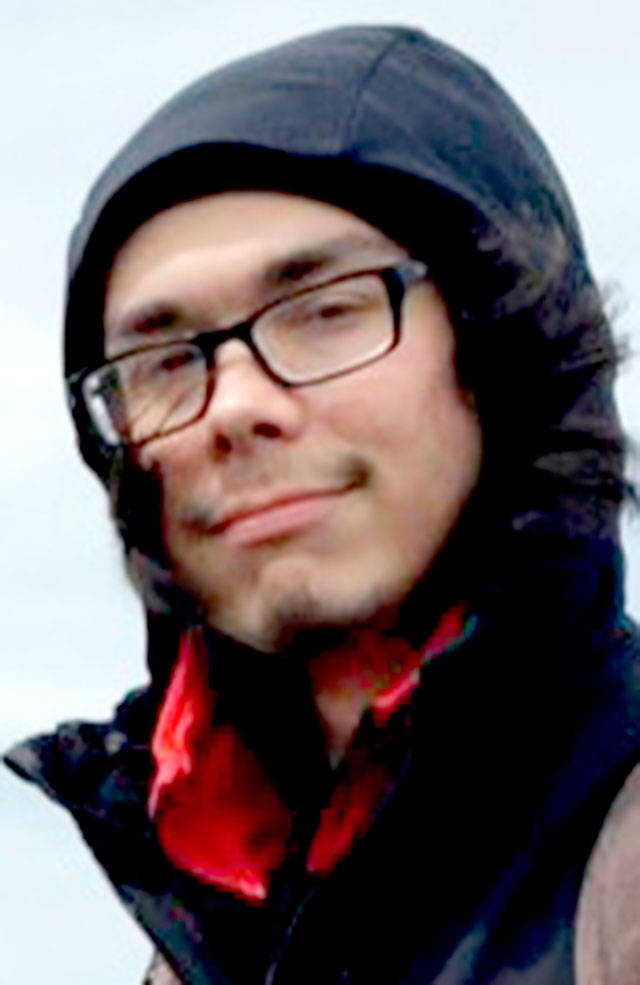PORT ANGELES – “We Rise. We Carry On. We Heal.”
That’s the theme of the Seventh Annual Native American Culture Fair to be offered virtually at 10 a.m. Thursday.
“Without certainty of our future, we created this theme to Rise, Heal and Carry On,” said Jonathan Arakawa of the Lower Elwha Klallam Tribe.
“Indian Country continues to Rise, Heal, and Carry On as we, once again, face another time of pandemic.”
“We bare the physical, intellectual, and spiritual strength of our ancestors. Indian Country will, as always, overcome the struggles in our path and presented in this pandemic.”
The Zoom link for the first two speakers at the free fair — Valerie Segrest at 10 a.m. and Reuben Martinez at 11 a.m — is https://pencol-edu.zoom.us/j/84506470031 with a meeting ID of 845 0647 0031.
The Zoom link for Fred Campbell at 12:30 p.m. is https://pencol-edu.zoom.us/j/89616075652 with a meeting ID of 896 1607 5652.
Guest speakers will present youth voices and Native American history, languages, and traditions.
Youth will lead the program, which is a collaborative effort of the Lower Elwha Klallam Tribe, Port Angeles High School’s Native American programs, Peninsula College’s First Nations Club, TESC Native Pathways Program, the PC STEM Club, and House of Learning, Longhouse.
Past workshops have included experiential activities where students toured specialized areas of the Peninsula College campus and learned about academic and professional programs.
The Culture Fair began in 2015 to spotlight the voices of youth and provide the opportunity for students to educate the college campus and community about tribal history and language.
Students worked for five weeks before the fair on the creation of a Coast Salish button blanket, which was gifted to the College and is permanently displayed in the Longhouse.
Here are the speakers:
• 10 a.m. — Segrest, an enrolled member of the Muckleshoot Indian Tribe, serves as the Native American Agriculture Fund’s director of Native Food and Knowledge Systems.
She has a bachelor’s in human nutrition and health sciences from Bastyr University and a master’s in environment and Community.
Segrest has dedicated her work in the field of Native American nutrition toward the efforts of the food sovereignty movement rooted in education, awareness, and overcoming barriers to accessing traditional foods for tribal communities throughout North America.
She has co-authored several publications, including the recipe books “Feeding Seven Generations: A Salish Cookbook” and “Indigenous Home Cooking: Menus Inspired by the Ancestors.”
Segrest aims to inspire and enlighten others about the importance of a nutrient-dense diet through a culturally appropriate, common-sense approach to eating.
• 11 a.m. — Martinez, a recent graduate of Western Washington University, is currently employed by Renewable Northwest.
He is an alumnus of Peninsula College, who spent his final year at WWU focusing primarily on renewable energy. He focused on this because he had worked with a mentor in a summer program partnered with Northwest Indian College. This mentor wanted to start a microgrid with the Lummi and Nooksack Tribes, and Martinez was committed to helping her out with this project.
“Unfortunately, due to COVID, the amount of participation I could contribute ground to a halt,” Martinez said. “But that wasn’t the end of this renewable energy idea for me.”
He is a member of the Makah Tribe, and was recently featured on the Peninsula College website in a blog that celebrated the important work of alumni.
“As Indigenous peoples and communities, we are sovereign nations, and we need to dream big,” Martinez said. “If our ideas can come true in our lifetime, we aren’t dreaming big enough.
“We have a lot to overcome, but dreaming is our biggest asset, and I think we can make them happen,” he said.
“For me, and my contribution, I want tribes all throughout the PNW to have the chance of figuring out what renewables can do for them, and I aim to help. I am only just beginning my journey on this road, but I think I am on the right path.”I hope if there are any tribal members who are interested in any of the work I am doing to please reach out.”
• 12:30 p.m. — Campbell — a data scientist, mountain and ice climber — will present a brief lecture focused on his work as a statistician and a mentor to students who have previously been under-served in colleges and other institutions.
Campbell works for Microsoft and uses machine learning methods to explore important problems and solutions.
His work is centered on ensuring that the methods are ethical.
“It is not enough to produce accurate models,” he said. “They must also be private, fair, reproducible and transparent so that they do not inadvertently harm people and everyone enjoys the benefits of these models.”
Campbell said that previously he had developed new structured variable selection methods and applied them to problems in genomics, proteomics and neuroimaging.
He holds a bachelor’s in mathematics and computational science from Stanford University, a master’s in statistics from Stanford University, a master’s in statistics from Rice University, and a doctorate in statistics from Rice University.

